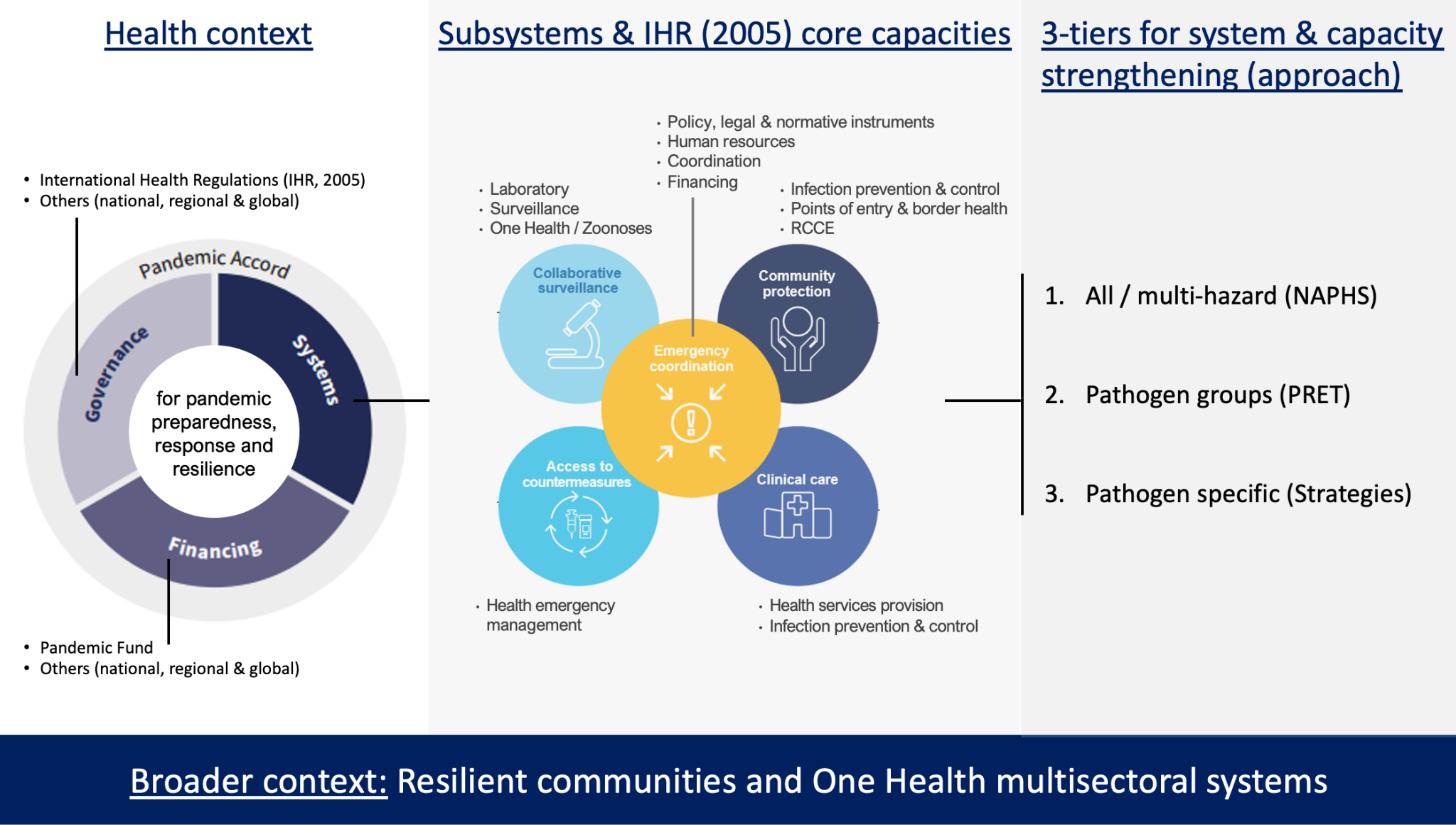PRET & The Big Catch-Up Initiatives | 28 Apr 2023
For Prelims: The Preparedness and Resilience for Emerging Threats (PRET) Initiative, The Big Catch-Up Initiative, World Health Organisation (WHO), International Health Regulations (IHR), UNICEF
For Mains: Initiatives to Overcome the Impact of Covid 19 Pandemic
Why in News?
In response to the Covid-19 pandemic, two initiatives – PRET and the Big Catch-up – have been launched to better prepare for future outbreaks of similar scale and devastation, as well as to boost vaccination rates among children.
What is the PRET Initiative?
- About:
- The Preparedness and Resilience for Emerging Threats (PRET) Initiative was launched by the World Health Organisation (WHO) and operates under the aegis of the International Health Regulations (IHR), 2005, which is a critical international legal instrument for managing public health emergencies.
- The initiative was announced at the Global Meeting for Future Respiratory Pathogen Pandemics held in Geneva, Switzerland.
- The Preparedness and Resilience for Emerging Threats (PRET) Initiative was launched by the World Health Organisation (WHO) and operates under the aegis of the International Health Regulations (IHR), 2005, which is a critical international legal instrument for managing public health emergencies.
- Aim:
- It focuses on improving pandemic preparedness for groups of pathogens based on their mode of transmission.
- Three Tiers of Pandemic Preparedness: It recognizes that there are three tiers of systems and capacities relevant to pandemic preparedness:
- those that are cross-cutting for all or multi-hazards
- those that are relevant for groups of pathogens (respiratory, arboviruses etc.)
- those that are specific to a pathogen.
- Coordinating Efforts:
- As part of its efforts, the WHO convenes an informal coordination forum known as the Respiratory Pathogens Partners Engagement Forum (R-PEF) which enables WHO and partners to exchange information on planned activities and other developments on planned activities.
Note:
- In Feb 2023, WHO published a ‘Zero-Draft’ of the Pandemic Treaty, aiming to bring in Global and National-Level Pandemic Preparedness.
- It calls for increased global coordination and cooperation in the preparation for and response to pandemics and other global health emergencies.
What is The Big Catch-Up Initiative?
- About:
- It was launched by the WHO, UNICEF, Bill & Melinda Gates Foundation along with Immunization Agenda 2030 and many other global and national health partners, a targeted global effort to boost vaccination.
- Aim:
- It aims to protect populations from vaccine-preventable outbreaks like -measles, diphtheria, polio and yellow fever - save children’s lives and strengthen national health systems.
- Main Focus:
- The initiative will pay special attention to the 20 countries — Afghanistan, Angola, Brazil, Cameroon, Chad, DPRK, DRC, Ethiopia, India, Indonesia, Nigeria, Pakistan, Philippines, Somalia, Madagascar, Mexico, Mozambique, Myanmar, Tanzania and Vietnam which are home to a majority of the children who have missed their vaccine doses.
- Salient Features of the Plan:
- Strengthening health care workforces
- Improving health service delivery
- Building trust and demand for vaccines within communities
- Addressing gaps and obstacles to restoring immunisation
- Need:
- More than 100 countries registered a drop in immunisation levels as the pandemic burdened health services as well as disrupted imports and exports of medical supplies.
- Access to healthcare was further compounded by strict lockdown measures, travel restrictions and depleting financial and human resources.
- India is among the 20 countries in the world where around 75% of children have missed essential immunisation against preventable but critical diseases in 2021.
- India's Efforts for Vaccination:
- As a result of the pandemic, immunisation efforts have been hampered, and some countries have already begun showing considerable progress.
- India managed to record a strong recovery in essential vaccines in 2022
- India’s Major Initiatives for Vaccination include:
- Covid Vaccine Drive
- Universal Immunization Programme which includes Indradhanush 4.0
- Mass Immunization Campaign for Measles-Rubella (MR)
- Pneumococcal Conjugate Vaccine (PCV)
- CERVAVAC vaccine for the prevention of cervical cancer
- Pulse polio programme
- As a result of the pandemic, immunisation efforts have been hampered, and some countries have already begun showing considerable progress.
Note:
- World Immunization Week is a health campaign coordinated by the WHO) and celebrated in the last week of April, every year.
- It aims to promote the use of vaccines to protect people of all ages against disease.
UPSC Civil Services Examination, Previous Yera’s Questions (PYQs)
Prelims
Q. ‘Mission Indradhanush’ launched by the Government of India pertains to (2016)
(a) immunization of children and pregnant women
(b) construction of smart cities across the country
(c) India’s own search for the Earth-like planets in outer space
(d) New Educational Policy
Ans: (a)
Mains
Q. Critically examine the role of WHO in providing global health security during the Covid-19 pandemic. (2020)

